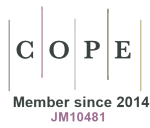Treatment fidelity in clinical trials
DOI:
https://doi.org/10.33393/aop.2024.3128Keywords:
Clinical trials, Fidelity, Quality, TreatmentAbstract
In the context of clinical trials, treatment fidelity (TF) has traditionally referred to the extent to which an intervention or treatment is implemented by the clinicians as intended by the researchers who designed the trial. Updated definitions of TF have included an appropriate design of the intervention that was performed in a way that is known to be therapeutically beneficial. This requires careful attention to three key components: (1) protocol and dosage adherence, (2) quality of delivery, and (3) participant adherence. In this viewpoint, we describe several cases in which TF was lacking in clinical trials and give opportunities to improve the deficits encountered in those trials. We feel that along with quality, risk of bias, and certainty of evidence, TF should be considered an essential element of the veracity of clinical trial.
Downloads
References
Ribeiro LP, Curiel-Montero F, Rodrigues-de-Souza DP, Camargo PR, Alburquerque-Sendín F. Assessment of description and implementation fidelity of clinical trials involving exercise-based treatment in individuals with rotator cuff tears: a scoping review. Braz J Phys Ther. 2024;28(2):101062. https://doi.org/10.1016/j.bjpt.2024.101062 PMID:38640642 DOI: https://doi.org/10.1016/j.bjpt.2024.101062
Ginsburg LR, Hoben M, Easterbrook A, Anderson RA, Estabrooks CA, Norton PG. Fidelity is not easy! Challenges and guidelines for assessing fidelity in complex interventions. Trials. 2021;22(1):372. https://doi.org/10.1186/s13063-021-05322-5 PMID:34051830 DOI: https://doi.org/10.1186/s13063-021-05322-5
Baker J, Stringer H, McKean C. Ensuring treatment fidelity in intervention studies: developing a checklist and scoring system within a behaviour change paradigm. Int J Lang Commun Disord. 2024;59(1):379-395. An M. https://doi.org/10.1111/1460-6984.12955 PMID:37715525 DOI: https://doi.org/10.1111/1460-6984.12955
Cook CE, Beneciuk JM, George SZ. Procedural drift: an underappreciated element of clinical treatment fidelity. J Orthop Sports Phys Ther. 2022;52(2):63-66. https://doi.org/10.2519/jospt.2022.10961 PMID:35100818 DOI: https://doi.org/10.2519/jospt.2022.10961
An M, Dusing SC, Harbourne RT, Sheridan SM; START-Play Consortium. START-Play Consortium. What really works in intervention? Using fidelity measures to support optimal outcomes. Phys Ther. 2020;100(5):757-765. https://doi.org/10.1093/ptj/pzaa006 PMID:31944249 DOI: https://doi.org/10.1093/ptj/pzaa006
Feely M, Seay KD, Lanier P, Auslander W, Kohl PL. Measuring fidelity in research studies: a field guide to developing a comprehensive fidelity measurement system. Child Adolesc Social Work J. 2018;35(2):139-152. https://doi.org/10.1007/s10560-017-0512-6 DOI: https://doi.org/10.1007/s10560-017-0512-6
Sousa Filho LF, Farlie MK, Haines T, et al. Developing an international consensus Reporting guideline for intervention Fidelity in Non-Drug, non-surgical trials: the ReFiND protocol. Contemp Clin Trials. 2024;142:107575. https://doi.org/10.1016/j.cct.2024.107575 PMID:38750951 DOI: https://doi.org/10.1016/j.cct.2024.107575
Delitto A, Patterson CG, Stevans JM, et al. Stratified care to prevent chronic low back pain in high-risk patients: the TARGET trial. A multi-site pragmatic cluster randomized trial. EClinicalMedicine. 2021;34:100795. https://doi.org/10.1016/j.eclinm.2021.100795 PMID:33870150 DOI: https://doi.org/10.1016/j.eclinm.2021.100795
Lavazza C, Galli M, Abenavoli A, Maggiani A. Sham treatment effects in manual therapy trials on back pain patients: a systematic review and pairwise meta-analysis. BMJ Open. 2021;11(5):e045106. https://doi.org/10.1136/bmjopen-2020-045106 PMID:33947735 DOI: https://doi.org/10.1136/bmjopen-2020-045106
Testa M, Rossettini G. Enhance placebo, avoid nocebo: how contextual factors affect physiotherapy outcomes. Man Ther. 2016;24:65-74. https://doi.org/10.1016/j.math.2016.04.006 PMID:27133031 DOI: https://doi.org/10.1016/j.math.2016.04.006
Adams SC, McMillan J, Salline K, et al. Comparing the reporting and conduct quality of exercise and pharmacological randomised controlled trials: a systematic review. BMJ Open. 2021;11(8):e048218. https://doi.org/10.1136/bmjopen-2020-048218 PMID:34380726 DOI: https://doi.org/10.1136/bmjopen-2020-048218
McConnell R, Klopper M, Rhon DI, Young JL. The influence of exercise therapy dosing on pain and functional outcomes in patients with subacromial pain syndrome: a systematic review. Shoulder Elbow. 2024;16(1)(suppl):42-58. https://doi.org/10.1177/17585732221124303 PMID:38425738 DOI: https://doi.org/10.1177/17585732221124303
Kucksdorf JJ, Bartley J, Rhon DI, Young JL. Reproducibility of exercise interventions in randomized controlled trials for the treatment of rotator cuff-related shoulder pain: a systematic review. Arch Phys Med Rehabil. 2024;105(4):770-780. https://doi.org/10.1016/j.apmr.2023.09.007 PMID:37741486 DOI: https://doi.org/10.1016/j.apmr.2023.09.007
Fuller T, Pearson M, Peters J, Anderson R. What affects authors’ and editors’ use of reporting guidelines? Findings from an online survey and qualitative interviews. PLoS One. 2015;10(4):e0121585. https://doi.org/10.1371/journal.pone.0121585 PMID:25875918 DOI: https://doi.org/10.1371/journal.pone.0121585
Pascoe SC, Spoonemore SL Jr, Young JL, Rhon DI. Proposing six criteria to improve reproducibility of “usual care” interventions in back pain trials: a systematic review. J Clin Epidemiol. 2022;149:227-235. https://doi.org/10.1016/j.jclinepi.2022.05.002 PMID:35577256 DOI: https://doi.org/10.1016/j.jclinepi.2022.05.002
Myers H, Keefe FJ, George SZ, et al. Effect of a Patient Engagement, Education, and Restructuring of Cognitions (PEERC) approach on conservative care in rotator cuff related shoulder pain treatment: a randomized control trial. BMC Musculoskelet Disord. 2023;24(1):930. https://doi.org/10.1186/s12891-023-07044-y PMID:38041042 DOI: https://doi.org/10.1186/s12891-023-07044-y
Whyte J, Hart T. It’s more than a black box; it’s a Russian doll: defining rehabilitation treatments. Am J Phys Med Rehabil. 2003;82(8):639-652. https://doi.org/10.1097/01.PHM.0000078200.61840.2D PMID:12872021 DOI: https://doi.org/10.1097/01.PHM.0000078200.61840.2D
Toomey E, Matthews J, Hurley DA. Using mixed methods to assess fidelity of delivery and its influencing factors in a complex self-management intervention for people with osteoarthritis and low back pain. BMJ Open. 2017;7(8):e015452. https://doi.org/10.1136/bmjopen-2016-015452 PMID:28780544 DOI: https://doi.org/10.1136/bmjopen-2016-015452
Hall AM, Ferreira PH, Maher CG, Latimer J, Ferreira ML. The influence of the therapist-patient relationship on treatment outcome in physical rehabilitation: a systematic review. Phys Ther. 2010;90(8):1099-1110. PMID:20576715 https://doi.org/10.2522/ptj.20090245 PMID:20576715 20. Palmer JA, Parker VA, Barre LR, et al. Understanding implementation fidelity in a pragmatic randomized clinical trial in the nursing home setting: a mixed-methods examination. Trials. 2019 Nov 28;20(1):656. doi: 10.1186/s13063-019-3725-5. PMID: 31779684 DOI: https://doi.org/10.1186/s13063-019-3725-5
Published
How to Cite
Issue
Section
Categories
License
Copyright (c) 2024 Chad Cook, Bryan O'Halloran, Steve Karas, Jodi Young

This work is licensed under a Creative Commons Attribution-NonCommercial 4.0 International License.
Accepted 2024-08-18
Published 2024-09-16









